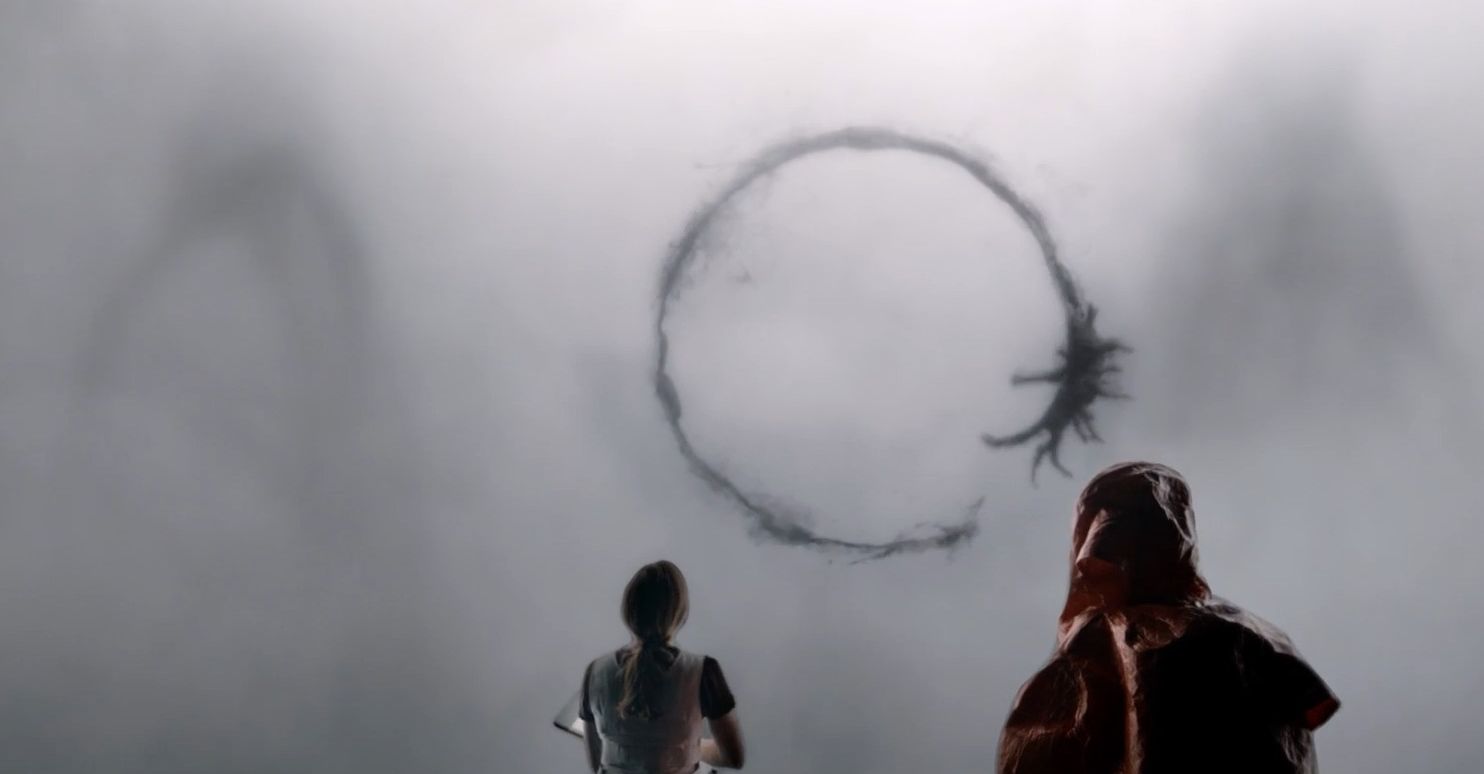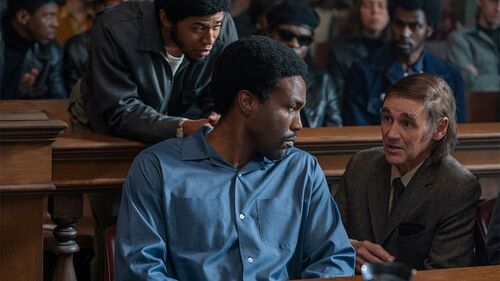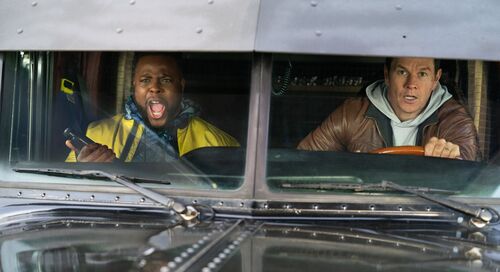
Arrival
 Chaos is order yet undeciphered – the line that opens Denis Villeneuve’s 2013 film, Enemy. Two films later and hints of that idea are at play in the brilliant Canadian director’s latest film, Arrival. Unlike Enemy, Arrival presents a clearer narrative and denouement that is tied up in a knot of simplicity that still has the power to overwhelm.
Chaos is order yet undeciphered – the line that opens Denis Villeneuve’s 2013 film, Enemy. Two films later and hints of that idea are at play in the brilliant Canadian director’s latest film, Arrival. Unlike Enemy, Arrival presents a clearer narrative and denouement that is tied up in a knot of simplicity that still has the power to overwhelm.
At the centre of Arrival is Louise (Amy Adams), a linguistics expert who is called in by military intelligence when an unidentified flying object lands in the US. We later learn 11 others have landed in other parts of the world, including Chinese waters and Siberia. There is understandably the whole top secret vibe about the whole thing and by the time Louise gets to the site of the landing, the military has already made first contact with the extra-terrestrials which kind of look like a more unnerving version of Thing from The Adams Family. They are eventually named Heptapods.
Louise works with a physicist, Ian (Jeremy Renner), heading a team with a mandate is discover the reason for this mysterious arrival. Communication will be key here, but not only spoken language, given the Heptapods, two of them here, emit a certain droning growl that meshes nicely with the film’s score. Louise breaks past this barrier by using written language to convey basic concepts and syntax. The Heptapods reciprocate with their form written language that resembles some radial version of the Rorschach test.
Louise and her team are able to decipher the Heptapod’s mode of communication but their work becomes a little more complex when human nature threatens to manifest amidst societal paranoia. Some countries have some real itchy fingers *cough China and Russia cough* and this puts a timer over Louise’s head as she becomes more passionate about reaching a breakthrough. These dull moments maybe come off as attempts to inject stakes, but they are generally an admission, especially on a second viewing, that this the film generally marks time to kill time. There is some talk of strikes against the aliens but these beats don’t really come close to the sense of urgency that precedes our first contact with the aliens.
Yes, this film lacks the overwhelming thrills, intrigue or wrenching emotion of past Villeneuve work but the steady pace affords us the opportunity to just soak in the visuals and appreciate the score; key to maximising the early tension. Optics-wise, there is something so soothing about Villeneuve’s and DP Bradford Young’s reliance on simple concise shots of nature; the reflection of the sky in a stream, a sun setting in the horizon, the impressive use of fog and clouds and the vast meadow in which the extraterrestrials modestly designed dwelling hovers as if to emphasise this anomalous intrusion into the simplicity of the natural world.
The calling card of this film is probably its minimalism which is ultimately anchored in the character of Louise. A twist does come our way in the final act but it just serves as the final key piece in a puzzle we did not know was being assembled. Our exploration of Louise begins in the opening scenes when a personal tragedy is outlined in a manner that evoked the emotional weight of the opening scenes of Up. There is a quiet solemnity and sadness to her character enhanced by dim lighting and bleak hue that envelopes her initial solitude. Much like her performance in Nocturnal Animals, there is a subtlety to the way Adams carries this film allowing her face, her eyes to convey her internal angst.
In the bigger picture, Arrival has some interesting things to say about the steps to establishing connections. Consider the degree of vulnerability required for Louise to make a proper breakthrough with the Heptapods or the fact that they are eventually given names - Abbott and Costello – to make them more relatable. You could juxtapose this with the unwillingness of world powers to exhibit some degree of vulnerability with each other when communication with fellow man and unity is needed most. The barrier for the countries is composed of fear and distrust, a barrier Louise has to overcome as the narrative unravels.
The film’s ambition creeps up you come to appreciate the thematic significance of some of our director’s choices when the final twist sweeps us away. It is isn’t loud, it isn’t showy, it isn’t spectacular; it just sows seeds of introspection as the film’s message sinks. Arrival is actually a more impactful and more intriguing second watch as we recognise various philosophical beats stare us in the face. The film's simple message and ambition earn the sentimentality it strives for with little fuss. But at its core, Villeneuve oversees a film that speaks to basic cycles and emotions of humanity and urges reflection on our part as we come to embrace its overarching idea which has to do with garnering fulfilment from the contradictions that life throws our way.
-
By: Delali Adogla-Bessa/delalibessa@yahoo.com/Ghana


